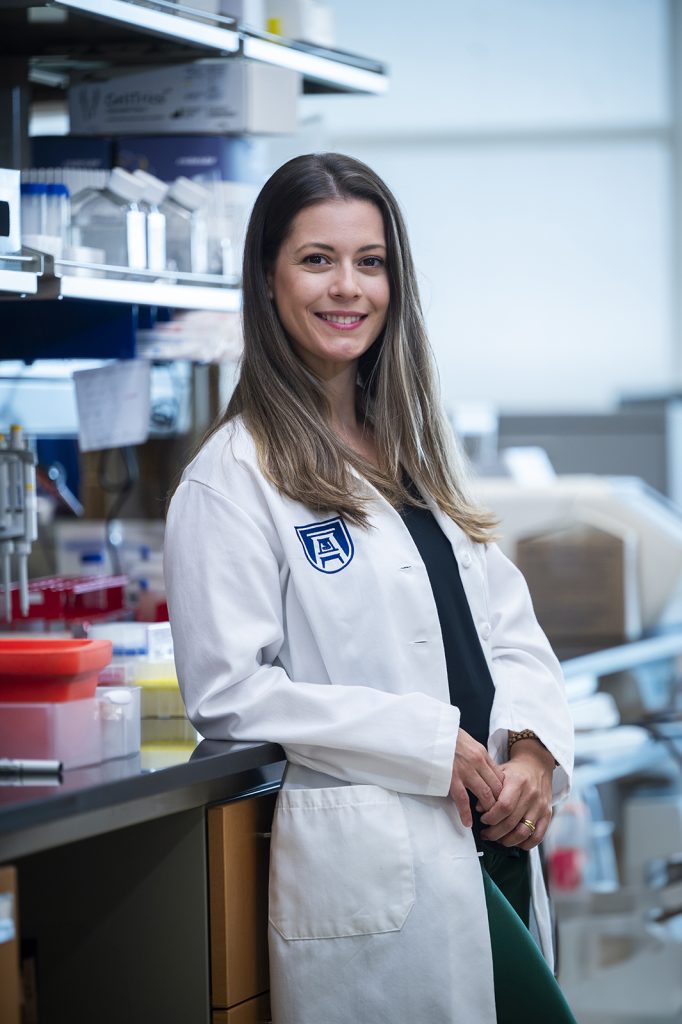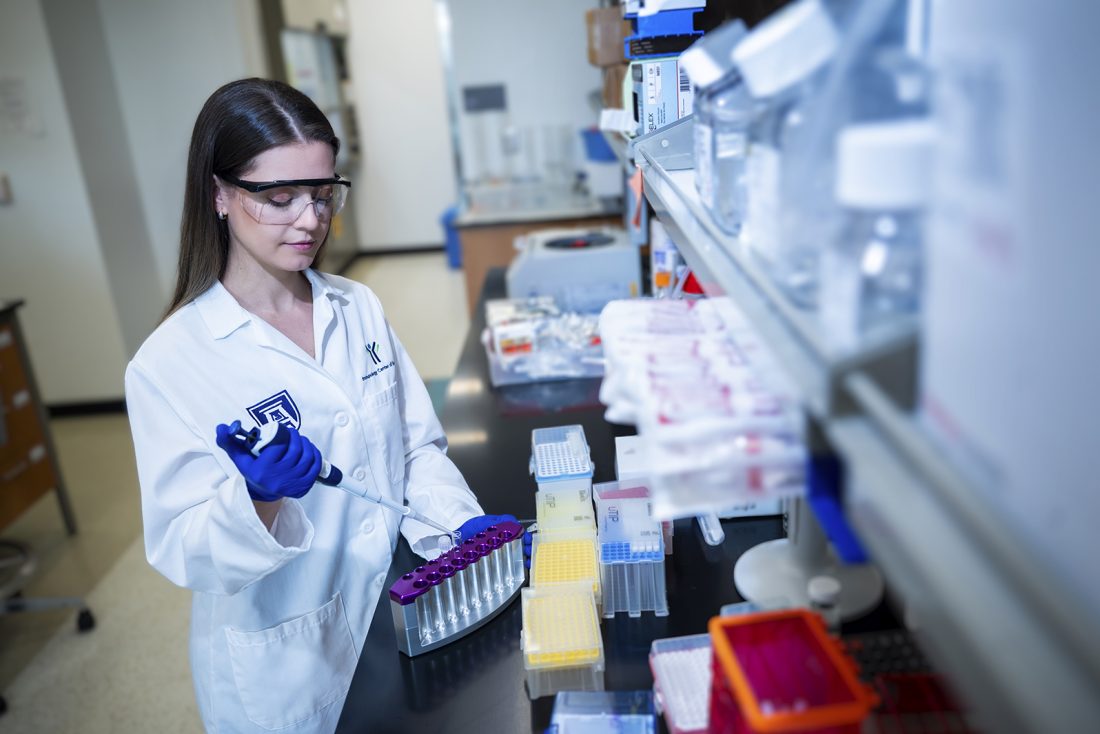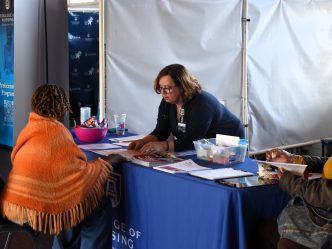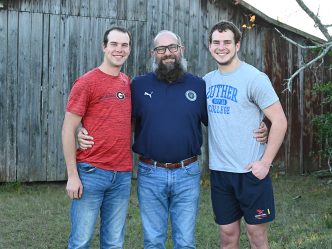A new study from a postdoctoral fellow at the Immunology Center of Georgia has uncovered new insights into the diversity of immune cells across a variety of human tissues.
Natalia Jaeger, PhD, is a researcher at IMMCG, which is part of the Medical College of Georgia at Augusta University. The study, “Diversity of group 1 innate lymphoid cells in human tissues,” was recently published in the journal Nature Immunology through research conducted while Jaeger was a doctoral student at Washington University School of Medicine in St. Louis.

[Michael Holahan/Augusta University]
Jaeger’s research offers a comprehensive analysis of group 1 innate lymphoid cells and natural killer cells, revealing how their diversity and functions vary depending on their tissue environment.
“We discovered a unique population of innate lymphoid cells in the intestine that are different from similar cells found in other parts of the body,” Jaeger said. “These cells, because they reside only in the intestine, may play a specific role in maintaining intestinal health.”
This finding is significant as it highlights the potential for these cells to contribute to the maintenance of tissue health in a way that was previously unknown.
The study also sheds light on another group of immune cells found in inflamed tonsils and unhealthy lungs that share features of both ILC1s and NK cells.
“These cells seem to adapt based on the tissue they’re in,” Jaeger said, “suggesting that immune cells can change their roles depending on their environment. This adaptability may help them respond better to different challenges in different parts of the body or contribute to disease.”
Using cutting-edge single-cell RNA sequencing and flow cytometry, Jaeger and her team were able to delve deep into the gene expression of these immune cells.
“The sequencing allowed us to capture detailed gene expression profiles, uncovering previously overlooked genes within this population,” Jaeger said. “Flow cytometry provided a complementary layer of data by confirming that the gene expression signatures we observed at the RNA level translated into protein expression within these cells.”
By demonstrating how ILC1s and NK cells can change their functions depending on their environment, the research opens new possibilities for understanding how these cells contribute to health and disease.
“Our research not only advances the fundamental knowledge of these cells but also paves the way for a deeper understanding of lymphocyte function in health and disease,” Jaeger said.
Catherine “Lynn” Hedrick, PhD, founding co-director of IMMCG, highlighted the importance of Jaeger’s research for the broader scientific community.
“This study is a significant contribution to our understanding of immune cell diversity,” Hedrick said. “The discovery that these cells can adapt and change their roles depending on their environment is a major step forward in our understanding of how the immune system functions.”
Looking ahead, Jaeger is excited about the potential therapeutic applications that could arise from this research.
“By uncovering how the location and conditions surrounding these cells influence their biology, we can begin to identify specific therapeutic targets,” Jaeger said.
She is particularly interested in exploring the unique population of ILC1s found in the gut, as they may play a crucial role in maintaining tissue stability.
“My ultimate vision is to help bridge the gap between scientific discovery and clinical application, contributing to the development of more effective treatments and improving patient outcomes in the future,” Jaeger said.
Discoveries at Augusta University are changing and improving the lives of people in Georgia and beyond. Your partnership and support are invaluable as we work to expand our impact.
 Augusta University
Augusta University




